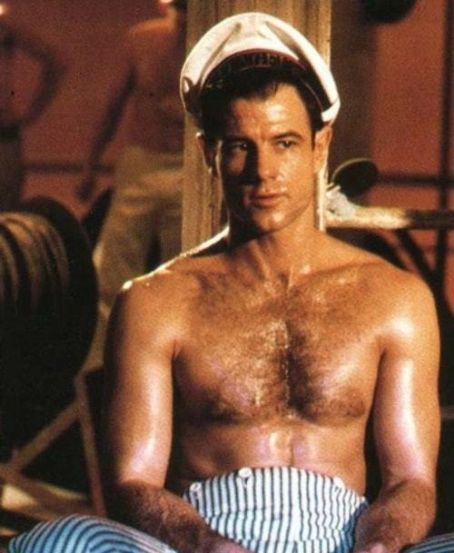Mike Daisey on Regional Theatre and Actors
#1Mike Daisey on Regional Theatre and Actors
Posted: 2/20/08 at 1:02pm
You might remember Daisey from a youtube clip posted about a year ago where some walkouts poured water all over his papers as they left. Here he gives a vitriolic and sooooo very right-on rant about the Seattle theater scene, but its really about the attitudes of the "masthead" theater companies coast to coast.
I know its not about LEGALLY BLONDE but it's a great read and you all should discuss...
How Theater is Failing America
#2re: Mike Daisey on Regional Theatre and Actors
Posted: 2/20/08 at 4:15pmThanks for posting.
zbigner
Stand-by Joined: 12/10/03
#2re: Mike Daisey on Regional Theatre and Actors
Posted: 2/20/08 at 5:48pm
Interesting article. I had never really thought about the connection between "outsourcing" acting jobs and increasing the role and expense of arts administrators. The Alley Theatre here in Houston is one of the few major regional theatres that still maintains a resident company of actors. As a subscriber I really enjoy seeing the same actors year after year tackling different types and sizes of roles. I have heard several of the actors say that they really like this as well.
I also subscribe to Theatre Under the Stars, and I sometimes regret that they can't follow the same model. I understand why it would be very difficult to maintain a resident company for musicals when they only perform 12 weeks a year compared to the Alley which is virtually year round. There is a smaller musical theatre company in town that does have a resident company, and they have really been gaining in popularity lately. I suspect the relationships that develop between actors and audience might be part of their success.
Zack
#3re: Mike Daisey on Regional Theatre and Actors
Posted: 2/20/08 at 5:51pmHow's Lt of Innishmore, Zack?
zbigner
Stand-by Joined: 12/10/03
#4re: Mike Daisey on Regional Theatre and Actors
Posted: 2/20/08 at 6:08pm
I really enjoyed it. It's a good example of how the Alley works. About half the roles were filled with Company members, and the others were outside actors. Gregory Boyd's direction was spot on, and it worked very well in the smaller space. I knew what to expect going in having read about the show in the newspaper and having seen The Pillowman last year. Apparently, some folks were unprepared, and there were some walkouts.
Another interesting thing related to the Daisey article is that while Lt. of Inishmore was going on in the Alley's small space, Love, Janis was running upstairs on the main stage filling the coffers to pay the bills. While Daisey may not like it, theatres do have to pay the bills unless actors and other artists decide to work for free. It's up to the theatres to find effective ways to both pay the bills and do good work.
NDR
Leading Actor Joined: 11/16/06
#5re: Mike Daisey on Regional Theatre and Actors
Posted: 2/20/08 at 7:44pm
I agree with Mr. Daisey that regional theatre has become much like Broadway in its quest to fill seats and build shinier and more elaborate "artistic" spaces worthy of housing an aging population with soon to be realized life insurance policies and wills. I also believe that a lot of regional productions suffer from a lack of an artists' community or resident company.
But I think the one thing that Mr. Daisey overlooks is the fact that not all of the people who work as regional theater administrators are wealthy and corporate-minded. It is the upper level management of many regional theaters that have embraced the corporate mentality and have managed (quite successfully) to fortify their pocketbooks with increased wages and golden parachutes.
I used to work as a Company Manager at a regional theater. I wanted to be a part of a living, breathing creative and artistic community, but the hierarchy and politics were stifling.
I was not paid well. The actors who came in from all over the country including New York, San Diego, San Fran, Seattle, etc. often made more money in a 12 week run than I made all year. All this when the Artistic Director continued to bolster his paycheck (one year more than a 50% raise also ironically the same year that all other staff were told they would not receive even a cost of living increase) and set new precedents for Artistic Directors by negotiating himself a one year paid vacation (sabbatical) with ready access to the theater credit card (I saw the statements - there is no way all those charges were legit expenses that should be charged to the theatre).
I think another issue is the fact that regional theater contracts are primarily union contracts. The unions do a lot of good for performers, but they also increase the cost of doing business by requiring regional theaters to provide everything from salt and pepper to paying shipping charges on up to 500lbs of personal items for visiting artists. I had actors ship their favorite comforter, dishes, their bike, keyboards, etc. The same contracts that protect performers also make it more difficult for regional theaters to hire them.
The long lost resident artistic companies could exist if regional theaters weren't required to hire casts with a majority of equity actors that cost the theater far more than their weekly paychecks. Regional theaters have to provide housing within a half a mile from the theater or else they have to pay for transportation to and from each performance. It would be far cheaper for regional theaters to hire and maintain local artists who pay for their own housing and transportation.
Even then, when actors get the required elements, they threaten to bad mouth the theatre and the upper level administrators cow-tow to their every demand because they don't want to risk losing their reputation. So they pay for rental cars, taxis, jersey sheets, organic coffee, cable TV, health club memberships, etc.
A lot of regional theaters are located in metropolitan areas where even low cost housing is still expensive. Because of the distance requirements, there are few options. Actors complain about the housing but the theaters only have so many options.
I guess what I am trying to say is that the sympathy shouldn't only be for the actors. They are many other victims of the current state of regional theater.
zbigner
Stand-by Joined: 12/10/03
#6re: Mike Daisey on Regional Theatre and Actors
Posted: 3/8/08 at 8:47pm
The Sunday Houston Chronicle has an extensive article about the Alley resident company, and it reminded me of this thread. To the right of the article you can find audio interviews with the company members as well. I found it quite interesting.
Chronicle article



